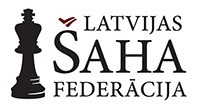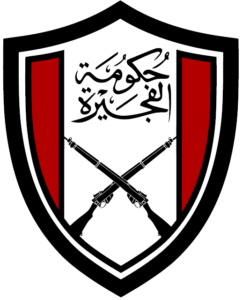WCSC 2024
WORLD CHESS SOLVING CHAMPIONSHIP
Director: Ryszard Królikowski
Assistants: Axel Steinbrink & Luc Palmans
Preliminary schedule
1st day, Tuesday, 30.07.2024
- 10:00-10:20: Round 1 – 3 twomovers
- 10:20-10:35: Coffee break
- 10:35-11:35: Round 2 – 3 threemovers
- 11:35-11:50: Coffee break
- 11:50-13:30: Round 3 – 3 endgames
2nd day, Wednesday, 31.07.2024
- 10:00-10:50: Round 4 – 3 helpmates
- 10:50-11:05: Coffee break
- 11:05-12:25: Round 5 – 3 moremovers
- 12:25-12:40: Coffee break
- 12:40-13:30: Round 6 – 3 selfmates
Rules (the excerpt from the Rules of the WORLD (EUROPEAN) CHESS SOLVING CHAMPIONSHIP)
1.1. The WCSC (ECSC) is a competition for national teams and individual solvers.
1.2. It consists of 6 rounds over two days, with 3 rounds each day according to the following table:
| Round 1 | 3 twomovers | 20 minutes solving time |
| Round 2 | 3 threemovers | 60 minutes solving time |
| Round 3 | 3 endgames | 100 minutes solving time |
| Round 4 | 3 helpmates (h#2, h#3, h# >3) | 50 minutes solving time |
| Round 5 | 3 moremovers (at least one 4# and one >4#) | 80 minutes solving time |
| Round 6 | 3 selfmates (s#2, s#3, s# >3) | 50 minutes solving time |
Round 4 and Round 6 may be exchanged. The breaks between rounds are at least 15 minutes.
2.3. The WCSC (ECSC) is an official team World (European) championship if teams of at least 7 countries participate. It is an official individual World (European) championship if at least 30 solvers with a full rating from at least 10 countries participate. For juniors (up to 23 years in the year of the event), women and seniors (from 60 years in the year of the event) required numbers are 10 solvers with at least a half rating from at least 5 different countries.
3.1. The organising country nominates the Director of the WCSC (ECSC), if possible, before the announcement of the tournament. It is recommended that the Director should have a title FIDE Solving Judge or he should have experience as a director / judge of at least three rated solving tournaments.
4.1. The teams consist of three (four at ECSC) solvers and the team-leader who may be one of the solvers. Teams consisting of only two (two or three at ECSC) solvers are also permitted. The members of the teams simultaneously compete in the individual championship.
4.2. All countries are entitled to enter one team, the organising country two teams and one team of juniors or women or mixed juniors and women. A country participating with a team(s) is allowed to nominate one further solver for the individual championship.
4.3. A country may nominate three more solvers from extra categories one of each from juniors, women, seniors out of this quota. For the junior’s / women’s / senior’s championship juniors / women / seniors from the regular national quota compete as well.
4.4. A country not participating with a team may send one (one or two at ECSC) solver(s) for the individual championship.
4.5. The top 50 solvers / top 25 women / top 25 juniors / top 25 seniors of the current or the preceding rating list of active solvers are entitled to participate in the individual WCSC (ECSC) including its respective special categories.
5.1. A country and individuals mentioned in point 4.5 must notify the organiser of their intention to participate not later than three months before the tournament; unless in the organiser’s announcement a later date is given.
5.2. The rules for the eligibility of participating solvers (whether team members or individual nominees) shall be the same as for FIDE over-the-board events.
5.3. Each country must notify the names of all solvers participating on its behalf in writing to the Director or the person nominated for this purpose by the Director or WFCC not less than 24 hours before the tournament starts. If required, the notification must include all documents according to the FIDE rules for establishing the eligibility of the participants.
7.3. A solver must write the solutions only on the sheet provided by the Director.
8. The solutions are to be written in algebraic notation in the following way:
a) in direct mate problems: all moves in all variations of full length which defend against the threat, including the threat if it is of full length, except the last move of Black and the mating move (i.e. in twomovers only the key; in threemovers all three-move variations, including the full length threat, up to the second white move, etc.). If there is no threat at all or an existing threat of full length is not written, all variations of full length are to be given. In a moremover with a threat (at any point) Black may have a defence that leads to a variation with the same next move(s) as in that threat, but a different continuation for White before the mating move; this variation must be written.
b) in selfmate problems: all moves except the mating move in all variations of full length which defend against the threat, including the threat if it is of full length. If there is no threat at all or an existing threat of full length is not written, all variations of full length are to be given. In a moremover with a threat (at any point) Black may have a defence that leads to a variation with the same next move(s) as in that threat, but a different continuation for White before Black’s mating move; this variation must be written.
c) in helpmate problems: all moves.
d) in studies: all moves up to an obvious win or draw.
9.1. In helpmate(s) for which more than one single solution is indicated the solver has to give all requested single solutions for a complete solution. In all other problems and studies only one solution is to be given.
9.2. If a solver believes he has found a cook, he may give it instead of the solution. In this case, he has to give the complete moves of the cook according to point 8. The correct and complete solution or cook of a problem scores 5 points.
9.3. An incomplete solution scores fewer points. Incorrect or incomplete variations or single solutions score 0 (zero) points. If more than the required number of solutions for a particular problem is written, it is enough that one of the solutions is incorrect for the solver to score 0 (zero) points for this problem. If more than one continuation following a defence (or more than one threat) is written, it is enough that one of them is incorrect for the solver to score 0 (zero) points for this variation (threat).
9.4. The Director must determine the distribution of points for a solution (i.e. for different variations, moves or single solutions) before the tournament starts. For a helpmate(s) with more than one solution the distribution of points should be indicated on the solving sheet.
9.5. If a problem has no solution, 0 (zero) points are awarded for this problem and all solvers get the full time score in this round.
9.6. Retro problems and problems with fairy conditions (see 6.3.) are treated like problems with no solution. A problem with an illegal position is treated like one with a legal position.
9.7. If a move is written incorrectly, unclear or ambiguously, this variation or single solution is regarded as incorrect. If, however, the Director (or the jury, pt 13.5) is sure that the correct move was intended, this variation or single solution must be regarded as correct.
10.1. During the solving a solver may leave the solving room only with a permission of the Director and accompanied by a controller.
10.2. When a solver hands over the solving sheet a controller immediately writes the elapsed time on the solver’s solving sheet. Elapsed time is rounded up in minutes (i.e. when the last minute starts solvers get full time). After handing the solving sheet, the solver has no right to make any change to the solutions. He should leave the room and may not return until the round is ended.
10.3. The Director announces 10 minutes left and the last minute in each round. After the announcement of the last minute all solvers remain sitting to the end of the round. When the end is declared they stop writing and wait until the controllers collect all the solving sheets.
11.1. For the team result in each round, the scores of the two (three at ECSC) best solvers of a team for this round are taken in consideration. The points of all rounds will be totalled, as well as the respective solving time (in minutes). At ECSC for a team with only two members the result of the third member is 0 (zero) points and full time in all rounds.
11.2. For the individual score, the points a solver achieves in the different rounds will be totalled, as well as the solving time.
11.3. A solver with 0 (zero) points in a round scores the full time for this round.
11.4. The number of points determines the ranking. In the event of a tie on points, the solver or team with the shorter total solving time will be ranked higher.
12.1. Participants must be informed of the official solutions with a distribution of points of a round immediately after the end of that round. The results of the rounds must be announced in written form as soon as possible.
12.2. If a problem has proved to be incorrect (cooks, duals, no solution) this must be announced as soon as possible including the respective distribution of points.
13.1. The Director has to publish his reports daily as soon as possible. Report after 10 pm is treated like at 8 am (on the following day). He should announce in advance when the report is to be published.
13.2. Protests against any announcement must reach the Director in written form not later than one hour after this announcement. He is allowed to accept protests out of time. If the Director cannot be found, a protest should be handed to any of his assistants or a protest remark is to be made on the announcement board. Protests have to be given by the team-leaders or by an individual solver.
13.3. The Director’s task is to deal with such protests and to settle disputes. His decision, along with his argument, is to be given in written form. He has to ensure that a solution given by a solver only can be seen by this solver himself, or by the leader or other members of his team.
13.4. Objections to any decision by the Director must be made in writing and must reach the Director within one hour of the announcement of the decision.
13.5. Such objections shall be dealt with by a jury consisting of three neutral persons nominated by the WFCC or by the team-leaders. The majority decision of the jury (in written form with the argument) is final.
14. These Rules should be published on the official announcement board at least 24 hours before the start of the first round as well as a Director’s timetable for the complete tournament (registration, start of the rounds, preliminary results, timetable for protests, final results, prize giving, etc.).




